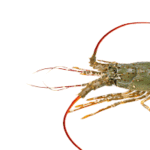When the COVID-19 pandemic began in March 2020, the world did not have available treatment or vaccines for the new virus and respiratory disease. To understand what the disease was, how to treat it, how to prevent its spread, and how public health measures like lockdowns were impacting us, researchers turned to observational research.
Observational research uses non-interventional study designs to answer research questions. The observed correlations and relationships can help lead to hypotheses that future interventional clinical trials can test. This is obviously a huge over-simplification of observational research’s purpose and capabilities, as it can do so much more and is used widely across many disciplines.
During the pandemic, researchers have used observational research study designs to investigate:
- Factors associated with COVID-19 related death
- Diabetes and severe COVID-19
- Pregnancy and COVID-19
- Suicide behaviors in children and adolescents and lockdown
Recently, on 25 January 2021, regulators from Health Canada and the European Medicines Agency (EMA) hosted a virtual workshop to discuss the importance of “international collaboration and sharing expertise and best practices on observational studies of real-world data to facilitate regulatory decision-making on COVID-19 treatments and vaccines.” They spoke to how critical the key findings from observational research are. In particular, how this research is very important to understanding the risks and benefits for COVID-19 medicines (published in this report).
As with any study, it is important to incorporate quality into the study design. This includes choosing the right study design to answer the research question, selecting the appropriate subjects for the study, ensuring protections are in place to minimize risks to subjects, including considerations for data analysis (such as choosing outcomes and endpoints, minimizing biases, protecting privacy and confidentiality of data, using appropriate statistics for analyses) and safety monitoring in the protocol. Researchers and those who are responsible for administration and review (such as IRB members and administrators) observational research should be knowledgeable of observational research protocols and what their strengths and weaknesses (and inherent biases) are.
CITI Program’s new course, Observational Research Protocols: An Introduction, explains the essentials of observational protocol design and development. The five-module course is comprised of an overview module, then three in-depth modules on different protocol designs, and then a final module that walks through how to write your own protocol. The course is for those who want to write their own protocols or conduct observational research (such as students, researchers, and research staff); and, for those who review or administrate observational research (such as HRPP professionals and IRB reviewers).




